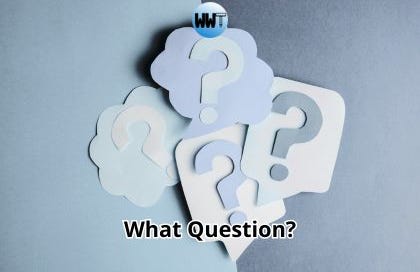Any links to Amazon are affiliate links.1 • If this is your first time receiving posts from Diary of a Stage 3 Writer, you can find the origin post here, the full list of posts here, and you can fiddle with your subscription settings here.
In this issue:
What Question?
Writing Prompt
WWT Tool Kit Craft Card
What Question?
I kind of feel like I’m re-teaching myself everything I already know (or thought I knew) as I write this current project into the dark.
I’ve gotten through the trough, the dark night, and now I’m facing down the climax and the ending. I have to bring all of the random storylines together and tie them off. Not necessarily in a neat bow, but in some kind of finished knot. And I’m wondering, how do I do that?
So as I was thinking about this on Mother’s Day, when I was sitting at the in-laws house, wanting to be home working on my project, what came to mind in answer to that question was . . . series from Stuart Horowitz‘s books.
He says a series is anything that repeats and changes throughout the book. Characters, objects, places, phrases, anything can be a series.
He also says that a series asks a question.2 Which means the question also speaks to the ending because answering the question is what ends the storyline.
I always thought the driving question in a story was a yes or no question. Will he succeed? Will they get together?
Horwitz discusses The Great Gatsby as an example, and he says the main storyline of that book is Who is Gatsby?
That’s not exactly a yes or no question.
You might say the story question is Will or won’t Gatsby get Daisy back? That answer is no. But that answer is also given way before the book ends. It’s not answered in the climax. (At least not according to Horowitz. I don’t actually remember when it becomes clear she’s not leaving her husband.)
Anyway, I think this is why I was having trouble with my ending. I was expecting my story to hinge on a yes or no question. And if I had outlined it, it probably would have. But I didn’t. And my written-into-the-dark story’s question and climax is somewhere in the middle of the yes-or-no continuum. It’s more of a What question than a Will question.
A main story question can definitely be a yes-or-no question, but it doesn’t have to be. Any question that provokes curiosity and spans the story can be the question.
And even if the story question is a yes-or-no question, like Will he succeed? . . . what does that even mean? When you’re facing down the ending, nowhere near hindsight perspective and without much foresight either—when you just don’t know what’s going to happen, let alone how it’s going to turn out—sometimes the question can be a What or a Who or a Why. Chances are that in answering that question, your character will find a way to creating a new kind of stasis. If readers analyzing your story later claim that the story question is, was, and always has been Will Character [achieve that new stasis], yes or no, well, whatever.
Writing Prompt
Character: CHILD: ETERNAL
Light Attribute: Determination to remain young in body, mind, and spirit. Ability to see things with fresh eyes.
Shadow Attributes: Inability to grow up and be responsible. Extreme dependency on others for physical security.Setting: An observatory.
Object: Ear buds, drafting tools, a music box.
Emotion: RESPECTFUL. Deferential, courteous, admiring.
WWT Tool Kit Craft Card
As mentioned before, I’m making a deck of craft cards to quickly remind myself of techniques while also having a convenient place to keep track of elements like character, conflict, and theme specific to each story. This week’s card is a repeat on types of series.
Thank you for reading!
I hope this helped you, and I hope your writing goes well this week.
Keep at it,
Megan
WritesWithTools
site: writeswithtools.com
ko-fi: https://ko-fi.com/writeswithtools
wishlist: http://tinyurl.com/WWTWishList
As an Amazon Associate, I earn from qualifying purchases, and links to amazon.com are affiliate links, meaning that if you make a purchase through a link, I may receive a small commission at no extra cost to you. This helps support my work and allows me to continue writing for you. Thank you for your support!



